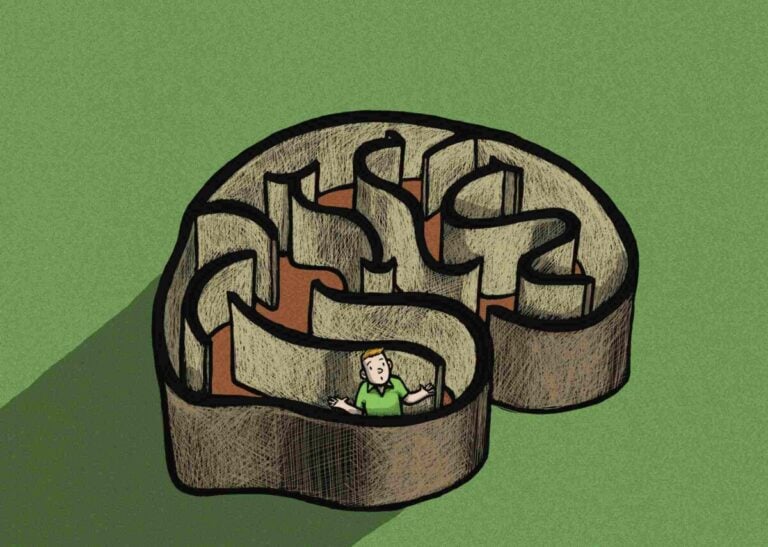Intelligent, eloquent, successful, but at the same time aggressive, walking on corpses, regardless of anyone – this is the personality of a sociopath.
According to many researchers, every fifth person in modern society may have sociopathic features. Who is a sociopath? What is a sociopathic personality and when should the red light come on?
What is a sociopath
Sociopathy is one of the personality disorders according to the International Statistical Classification of Diseases and Related Health Problems ICD-10. The sociopathic personality has enormous problems adjusting to life in society.
The traits of a sociopathic personality are:
- lack of empathy;
- low level of compassion;
- inability to build long-term relationships with people;
- lack of attachment to another person;
- Misunderstanding the concept of harm and lack of guilt.

A sociopath sees only his goal, and the other person is for him an object, an obstacle, an enemy that needs to be overcome, if only he stands in his way. It is worth noting that this does not have to be an objective obstacle to anything. Sociopaths are self-sensitive and may mistake many actions as attacks on themselves. Such a person does not have the opportunity to remain in “normal” relationships with people – he is emotionally cold. In addition, the sociopath is very self-centered and self-harming. He does not notice his mistakes in behavior and always blames others.
A sociopath can be a person who, at first glance, is no different from other people – he is good-looking, smart, professionally successful, full of charm and eloquence, which he often uses to manipulate people.
Character Traits
The sociopathic personality is perfectly reflected in the saying “by the dead to the goal.” Tough and stubborn, he approaches everything “in the cold”, persistently striving to realize his plans in the name of the principle “the end justifies the means”. This is the best overview of the activities of the classic sociopath.
Other characteristics of a psychopath:
- highly developed ability of observation – thanks to it, he perfectly knows his victim and her sensitive points;
- high IQ, thanks to which everything is calculated perfectly;
- the ability to adapt to the environment, upon entering the group gives the impression of one of its members, which quickly gains trust;
- ruthlessness – only the goal of achievement matters. Sociopaths betray other people and use them as a tool to achieve their goal. They are excellent actors.
Thus, the destructive traits of a sociopath most often hide under the guise of a talkative, sympathetic, empathetic person (a sociopath often asks someone about something, ostensibly out of concern, but in fact it is information gathering that he can use).
Signs of a sociopath
Identifying a sociopath, as well as distinguishing him from, for example, a psychopathic personality, is a difficult task. Emotional coldness, getting satisfaction from a managerial position or other method of “dominating” others, may be the result of completely different problems or disorders. Sociopathy is not one trait, but a whole team.

Sociopath symptoms:
- Frequent violations of the norms, rules of the group, community and no shame or guilt about it. Sociopaths do not see anything wrong with this, for them this is a completely normal situation;
- Treat other people badly, manipulate them, use them to achieve your goal, and then reject them. Sociopaths can be very nice and kind to win someone’s sympathy, but when they achieve their goal, they don’t care about the feelings, condition, needs of these people;
- lack of concern for others, both among friends and colleagues, and in family and relationships. For a sociopath, only his needs and expectations are important. He treats others as a tool for their satisfaction;
- Emotional coldness both in relationships and with friends. Sociopaths cannot love, worry, and not think about their behavior.
Occupying a high position or having power over other people, he often takes advantage of his position. He can use mobbing, getting satisfaction from humiliating people and instilling fear in them.
A sociopath, unlike a psychopath, usually does not resort to physical violence. If you are unsure if a loved one has this type of disorder, you can take the psychopath test. Various tests can be found for free on the Internet.
Sociopath and psychopath – main differences
Ideas about a sociopath and a psychopath have forever entered into everyday life. These terms are often used interchangeably, but this is not entirely appropriate.
A sociopath can psychologically abuse vulnerable people, but he rarely resorts to physical violence.
The psychopath, in turn, suffers from brain imbalance. He may exhibit most of the characteristics of a sociopath, but what distinguishes one from the other is the chaotic and impulsive behavior of a psychopath.
A psychopath, unlike a reserved and even prudent sociopath, acts very emotionally, often without a plan or affect. Usually psychopaths are very aware of the current rules and regulations, but deliberately violate them. Psychopaths are aware of the consequences of their actions and know when they exceed acceptable limits, but this does not prevent them from acting. It is psychopaths who often commit violent crimes, including murder.
Where do sociopathic disorders come from?
Virtually no one is born a sociopath – they become sociopaths during their lifetime. Experts argue that a sociopathic personality is formed as a result of social relations according to the principle “with whom you associate, you become”.

Wrong role models transmitted by adults: parents, family or environment, as well as a group of peers, lead to a distortion of the correct perception of the world.
People who in childhood did not experience sufficient support from relatives, were criticized, did not show positive emotions, were subjected to psychological violence, more often become sociopaths.
A sociopathic personality can also be developed by parents who are overly eager to make their child successful, always the best, and first everywhere. The daily pressure and criticism for failure teaches you to always strive towards your goal and ignore others.
Sociopath in relationships
Living or being in a relationship with a sociopath is possible, but it’s definitely not the silk road. This is everyday life, full of nerves, uncertainty and fear of tomorrow. It is said that a sociopath can only be dominated by another sociopath who is bigger than him. However, this is a vicious circle that only leads to skirmishes, fights and quarrels. A person weaker than a sociopath should not try to convince him to change his mind or force him to learn something. The best tactic is to ignore his aspirations and not engage in controversy – this will only provoke him.
However, this attitude is possible when the person living with the sociopath is aware of the disorder. Otherwise, breaking out of the clutches of a toxic relationship is very difficult. A sociopath will take advantage of any weakness he knows about, easily dominate and rob him of his self-esteem.
Therefore, a relationship with a sociopath is a very difficult and exhausting relationship. Outbursts of aggression, egocentrism, inability to care are only apparent feelings. All this makes sociopaths usually lonely.
Treating the problem
Do you become a sociopath for the rest of your life? It depends, first of all, on the recognition of the problem by relatives, as well as by the person concerned.
Referring a sociopath to therapy is quite a dizzying task. In the end, he is convinced that there is no problem, and he will perceive it as a certain conspiracy to persuade him to consult a specialist.



















